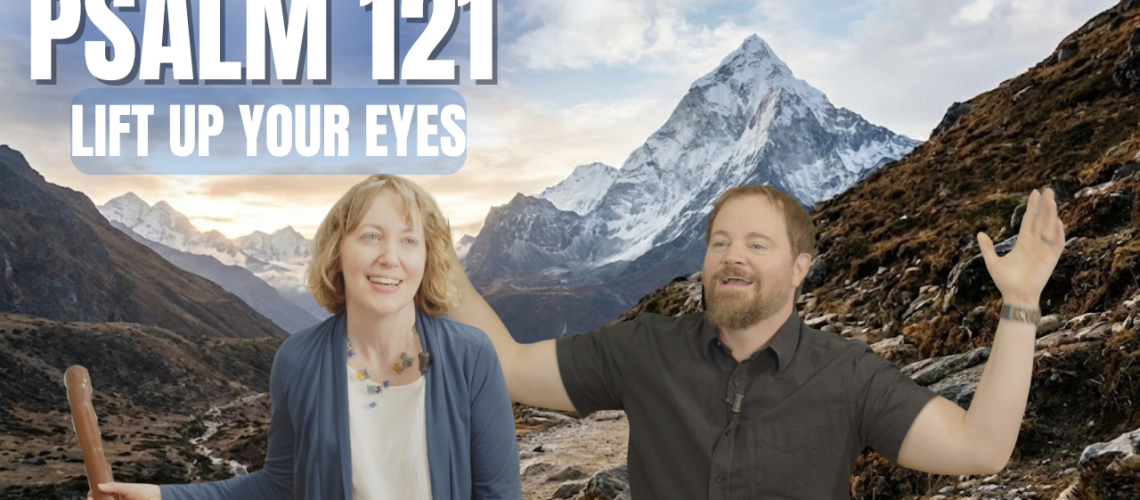“I lift up my eyes to the hills— where does my help come from? 2My help comes from the LORD, the Maker of heaven and earth. 3 He will not let your foot slip— He who watches over you will not slumber; 4 indeed, He who watches over Israel will neither slumber nor sleep. 5 The LORD watches over you—the LORD is your shade at your right hand; 6 the sun will not harm you by day, nor the moon by night. 7 The LORD will keep you from all harm—He will watch over your life; 8 the LORD will watch over your coming and going both now and forevermore.” (NIV 1984)
Prayer (Prayed by Side 1 and Side 2 of the Room):
Side 1: We lift up our eyes to the hills—from where will our help come?
Side 2: Our help comes from the Lord, who made heaven and earth.
Side 1: He will not let our feet be moved. He who keeps us will not slumber.
Side 2: He who keeps Israel will not slumber nor sleep.
Side 1: The Lord is our Keeper. The Lord is our shade at our right hand.
Side 2: The sun will not strike us by day nor the moon at night.
Side 1: The Lord will keep us from all evil. He will keep our lives.
Side 2: The Lord will keep our going out and our coming in.
All: From this time on and forevermore.
Psalm 121 Is Called “The Traveler’s Song”
In this psalm, we learn that God is our companion on our journey to Him.
“God is our portion, Christ our companion, the Spirit our Comforter, Earth our lodge, and Heaven is our Home.” ~ Charles Spurgeon.
“I Lift My Eyes Up to the Hills – Where Does My Help Come From?”
Help does not come from the hills or mountains, but from the Lord. The psalmist answers accordingly in the following verse:
“My help comes from the LORD, the maker of heaven and earth.”
This phrase appears three times in the Songs of Ascents – in Psalm 121:2, Psalm 124:8, and Psalm 134:3. As any good teacher will tell you, repeating a phrase means it’s something worth remembering. Our help comes from the Lord.
Keep Guard and Protect
The Hebrew word, Shamar is repeated six times in Psalm 120. It means “to keep, guard, or protect”. Shamar is translated to three English words: watch, guard, and keep.
There is a call and response in Psalm 121, which could be from a priest, father, or an internal conversation (See Psalm 42).
The Lord Will Keep You From Harm
Verse 7 gives a clear promise from the Lord to the traveler. Does this mean the pilgrim journey is easy, and we will not go through anything difficult?
Consider the words of Romans 8:35. “Who shall separate us from the love of Christ? Shall trouble or hardship or persecution or famine or nakedness or danger or sword?”
Eugene Peterson writes:
“The promise of the psalm—and both Hebrews and Christians have always read it this way—is not that we shall never stub our toes but that no injury, no illness, no accident, no distress will have evil power over us, that is, will be able to seperate us from God’s purposes in us.”
Now and Forevermore
Now and Forevermore appears three times in the Songs of Ascent: Psalm 121, 125, and 131. In this psalm, we see the Lord promising to watch over our comings and goings, both now and forevermore. As we begin this journey, we know that God is with us, and He will continue to be with us both now and forevermore.




